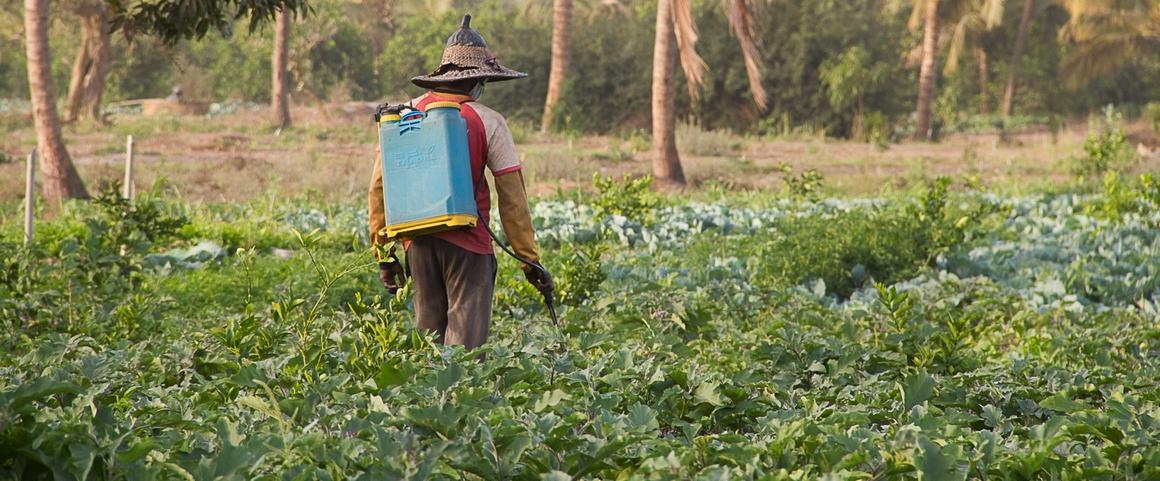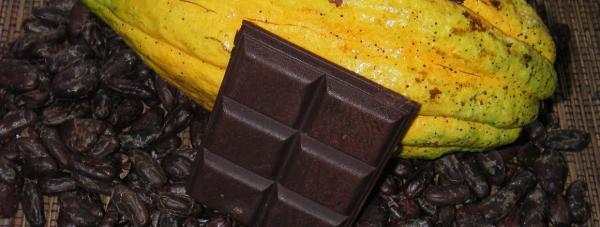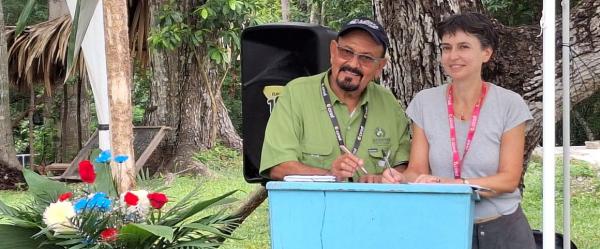Science at work 16 December 2025
- Home
- Press area
- Press releases
- Agroecological crop protection to cut pesticide use
Agroecology applied to crop protection: the zero-pesticide farming challenge

In sub-Saharan Africa, many producers apply broad-spectrum pesticides once or twice a week as a preventive measure. The systematic use of the same active molecules leads pests to develop resistance, which in turn prompts producers to treat even more frequently © R. Belmin, CIRAD
Many researchers are interested in and have begun developing crop protection approaches that either partly or totally cut pesticide use under certain conditions. Those approaches include agroecological crop protection (ACP). "The aim is to apply the principles of agroecology to crop protection", says CIRAD's Jean-Philippe Deguine, an agroecologist who coordinated the article. This relies on two of the basic principles of agroecology – making use of biodiversity and boosting soil health – and the founding principle of crop protection: prevention (disease-tolerant or -resistant varieties, suitable farming practices, a combination of agronomic solutions that have just a partial effect) rather than cure (pesticide use) against crop pests.
"Unlike pesticides, which are licensed and must be used against a specific type of pest, ACP can be used on a territory or agrosystem scale, against all pests, by means of a virtuous circle of using biodiversity to boost agrosystem health", the researcher adds.
A recent study led by INRAE, in which CIRAD participated, revealed a strong link between plant diversity and natural pest regulation (insect pests, weeds and pathogenic fungi).
For the researchers who co-wrote the article, ACP is capable of simultaneously maintaining or improving agricultural yields (by reducing pest damage), ensuring healthy food, reducing the negative impacts of farming on the environment and on human health (zero pesticides), and helping to make farms more economically viable. The authors summarize the knowledge acquired and suggest ways of rolling out ACP.
"The concept can be applied all over the world, provided local specificities are taken into account", says CIRAD agronomist Nadine Andrieu, one of the article's co-authors. "To this end, two-way knowledge sharing between scientists and farmers is vital, but substantial support from public policy will also be needed, to support the necessary technical and organizational changes."
Public policy must also allow for the time needed to implement ACP within farming systems, which calls for a transitional phase that can last several years, what with joint field diagnoses, participatory redesigns of cropping systems, farmer training and coordination of stakeholders. "We need to move away from the current short-term rationale and take the time to recreate biological equilibria within agro-ecosystems. The sooner we start, the sooner those new systems will be able to address the current issues facing farming", CIRAD agronomist Eric Scopel stresses.
This article, signed by 56 scientists, including more than 40 from French organizations, expresses the clear scientific consensus in France around ACP. It includes some 300 bibliographical references from every continent and opens up new prospects in terms of potential, and also new research operations.
Ivory Coast: market gardening in agroecological transition
Reference
Jean-Philippe Deguine et al. 2023. Agroecological crop protection for sustainable agriculture. Advances in Agronomy



























